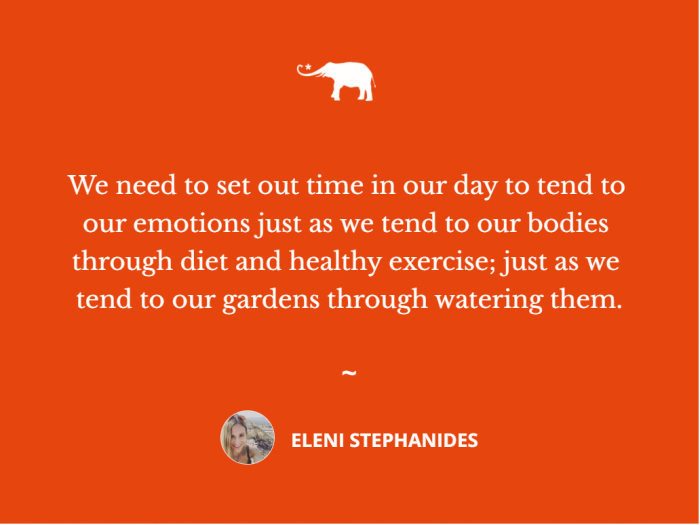View this post on Instagram
Feelings can be complex—shifting and rearranging like tectonic plates beneath our awareness, at times transmuting like wily invisible forces before we can put a finger on them.
Sometimes even while we’re in the process of tending to one, it’s already multiplied like the heads of Hydra.
It’s no wonder that many of us have learned to be afraid of feelings, the negative ones especially.
Early on in life, particularly for people who come from dysfunctional or emotionally inconsistent homes, we develop the habit of stamping these beasts out as soon as they surface—rather than working through them.
Pharmaceutical companies and modern psychiatry encourage an obliteration approach, often prescribing pills after achieving only a cursory understanding of the issues. Patients are given seemingly instant fixes to complex problems that, when dealt with properly, take many hours of unpacking and parsing out.
A Lyft passenger I once drove (one of my most memorable rides to date), said to me: “We try to fix things before understanding them. Without ever understanding them. It’s such a part of the American culture. Quick fix, make it go away. It’s like we think tending to emotions the proper way will come at the expense of success. Emotions are messy and distract from productivity, so stuff them down.”
Here’s the thing though; feelings don’t have to be scary. The formidable spiraling, I think, often happens after avoiding a feeling for too long. Once we do finally allow ourselves to feel it, the delay has dialed up its intensity significantly.
We need to set out time in our day to tend to our emotions just as we tend to our bodies through diet and healthy exercise; just as we tend to our gardens through watering them.
Think of it this way:
You take your dog out for a walk every day. You eat three times a day. You sleep every night.
What would happen if you were to stop walking your dog, eating, or sleeping?
Your dog might be filled with pent-up energy by the time you finally let him out. Maybe he’d pee on all the neighbors’ plants. Maybe he’d attack some of the nearby dogs. Maybe he’d run away and never come back. Or maybe he’d sprint so fast you’d lose him—or your arm would snap from not being able to contain him with the leash.
What about if you stopped eating? You’d probably be ravenous by the time food was finally placed in front of you. Maybe you’d be willing to eat anything— even things you knew were not good for you. You’d forget things, be more irritable, make silly mistakes, perceive everything from the most innocuous light shining through the window as a threat or a predator.
Why aren’t we taught to treat our emotions the same way we treat dog-walking, eating, and sleeping?
Did you really just compare our emotions to dogs, Eleni?
Yup, I did—and hear me out.
Our emotions heal when they’re tended to. It’s important that we open ourselves to them, that we ride the wave of whatever comes our way; rather than forbid access to all but the most convenient of them.
When you turn toward the unpleasant, you’re rewarded with authenticity; and that slow burn authenticity is healthier for us in the long-term, than whatever short-term protection is offered by avoiding present moment unpleasantness.
There’s only so much depth our relationships can reach if we don’t turn toward our feelings. Communication skills alone will not help a relationship if the underlying causes of the discord—the buried emotions, the convoluted “10 feelings pile-up”—are left unaddressed.
We would all benefit as a society, especially those who struggle with their mental health, to not deny, stuff down, and run away from our feelings (both our own and those of our loved ones). We would all benefit to understand them better.
~
~








Read 0 comments and reply